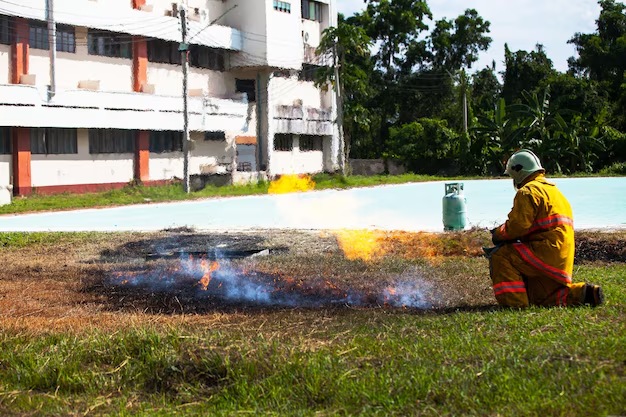Does Renters Insurance Cover Damage from Fires? Here's What You Need to Know
Picture this: you've just moved into a cozy new apartment. Your belongings are neatly arranged, and everything is going according to plan. But have you paused to consider how vulnerable your possessions might be in the event of a fire? This question becomes more pertinent when you ask: does renters insurance cover fire damage? As a renter, understanding the nuances of your insurance policy is crucial. Here, we'll explore this topic in depth, providing you with insights and peace of mind.
🔍 Understanding Renters Insurance
Renters insurance is a type of insurance policy that offers protection to individuals renting a home or apartment. It's designed to cover various liabilities and losses. Let's break down its key components:
What Does Renters Insurance Generally Cover?
Renters insurance is primarily structured to protect your personal belongings and cover liability if someone is injured in your rental space.
- Personal Property Coverage: This component safeguards your possessions—like clothes, electronics, and furniture—from damages or theft.
- Liability Coverage: Offers protection if you're found legally responsible for injury or property damage to others.
- Additional Living Expenses (ALE): Covers the cost if you're temporarily displaced due to a disaster.
Common Perils Included
Renters insurance typically covers a broad range of perils, including but not limited to theft, vandalism, certain natural disasters, and—significantly—fire damage.
🔥 Does Renters Insurance Cover Fire?
Yes, renters insurance typically includes coverage for damage caused by fire. This protection extends to your personal property within the rental property and may sometimes cover additional living expenses if your rented home becomes uninhabitable due to fire.
Personal Property and Fire Damage
Your renters insurance will usually cover the replacement or repair of belongings damaged or destroyed due to a fire. It's vital to understand the value of what you own:
- Replacement Cost Coverage: Pays for the cost to replace damaged property without factoring in depreciation.
- Actual Cash Value Coverage: Covers the cash value of items lost, accounting for depreciation.
💡 Tip: Always opt for coverage that accurately reflects the value of your possessions for optimal protection.
Liability Coverage and Its Importance
Renters insurance also covers liability if a fire you caused damages a neighbor's property or if someone is injured due to the fire in your rental space. This can include legal expenses and potential settlements.
Additional Living Expenses in Case of Fire
If a fire renders your residence uninhabitable, ALE coverage steps in to cover temporary housing, meals, and other necessary transitional expenses.
🧐 What Is Not Covered?
While the fire coverage seems comprehensive, it’s essential to understand what might not be covered by standard renters insurance policies:
- Negligence: If a fire started due to negligence or intentional acts, your claim might be denied.
- Flood Damage: Damage caused by floods generally requires separate coverage.
💭 Consideration: Tailor your insurance policy to include riders or additional policies for specific exclusions you may face.
🤝 The Claim Process: How to Navigate Fire Damage Claims
Filing a renters insurance claim for fire damage involves several steps. Here's a guide to simplify the process:
- Document the Damage: Take photos and list all items damaged by the fire.
- Notify Your Insurer Promptly: Report the incident immediately to start the claim process.
- Provide Evidence: Submit receipts or appraisal documents for the damaged items.
- Stay Organized: Keep track of communication with your insurer and save all related documents.
🛠 Pro Tip: Name one point of contact in the insurance company to maintain consistency and clarity in communication.
🔄 Related Considerations: Beyond the Basics
Understanding how renters insurance handles fire damage is half the battle. Here are other considerations to expand your knowledge:
Fire Prevention Tips for Renters
Being proactive about fire safety can minimize risks. Simple steps such as checking smoke detectors, having a fire extinguisher handy, and knowing evacuation routes are steps every renter should take.
The Role of Your Landlord's Insurance
The building's structure might be covered under your landlord’s insurance, but this won’t protect your belongings. It’s vital to distinguish between what’s covered by your landlord’s policy versus your renters insurance.
🔔 Note: If building negligence causes a fire, your landlord's insurance may take precedence, but it's crucial to have witnesses and documentation.
🔄 Recap: Renters Insurance Fire Coverage at a Glance
Here's a visual summary to quickly recall the essentials:
✅ Renters Insurance Fire Coverage Checklist:
- Personal Property: Covers fire-damaged items.
- Liability Protection: Helps if responsible for fire-related injuries or damages.
- ALE Coverage: Funds temporary relocation costs.
- Standard Exclusions: Typically excludes negligence and flood damage.
- Claim Steps: Document, notify, provide evidence, stay organized.
🔚 Bridging the Knowledge Gap
Knowing if renters insurance covers fire damage provides not only peace of mind but also a blueprint for managing unexpected events. Empower yourself with the knowledge of what your insurance covers, wisely choose your level of protection, and always be proactive about safety measures. These steps ensure that even if the unthinkable happens, you're well-prepared to face it.

Related Topics
- Can a Landlord Require Renters Insurance
- Can I Add People To Usaa Renters Insurance
- Can Renters Insurance Cover Mold
- Can You Cancel a Renters Insurance Policy Early
- Can You Legally Rent a House Without Renters Insurance
- Do Apartments Cancel You Renters Insurance
- Do I Have To Have Renters Insurance
- Do I Need Renters Insurance
- Do Landlords Require Renters Insurance
- Do Renters Insurance Cover Mold
